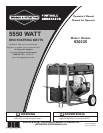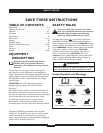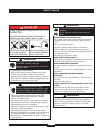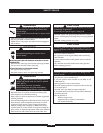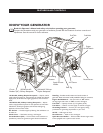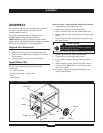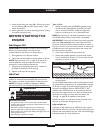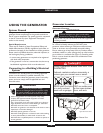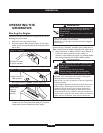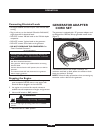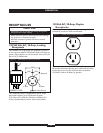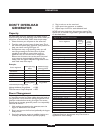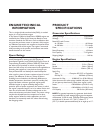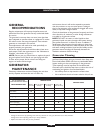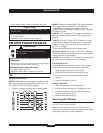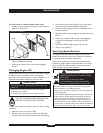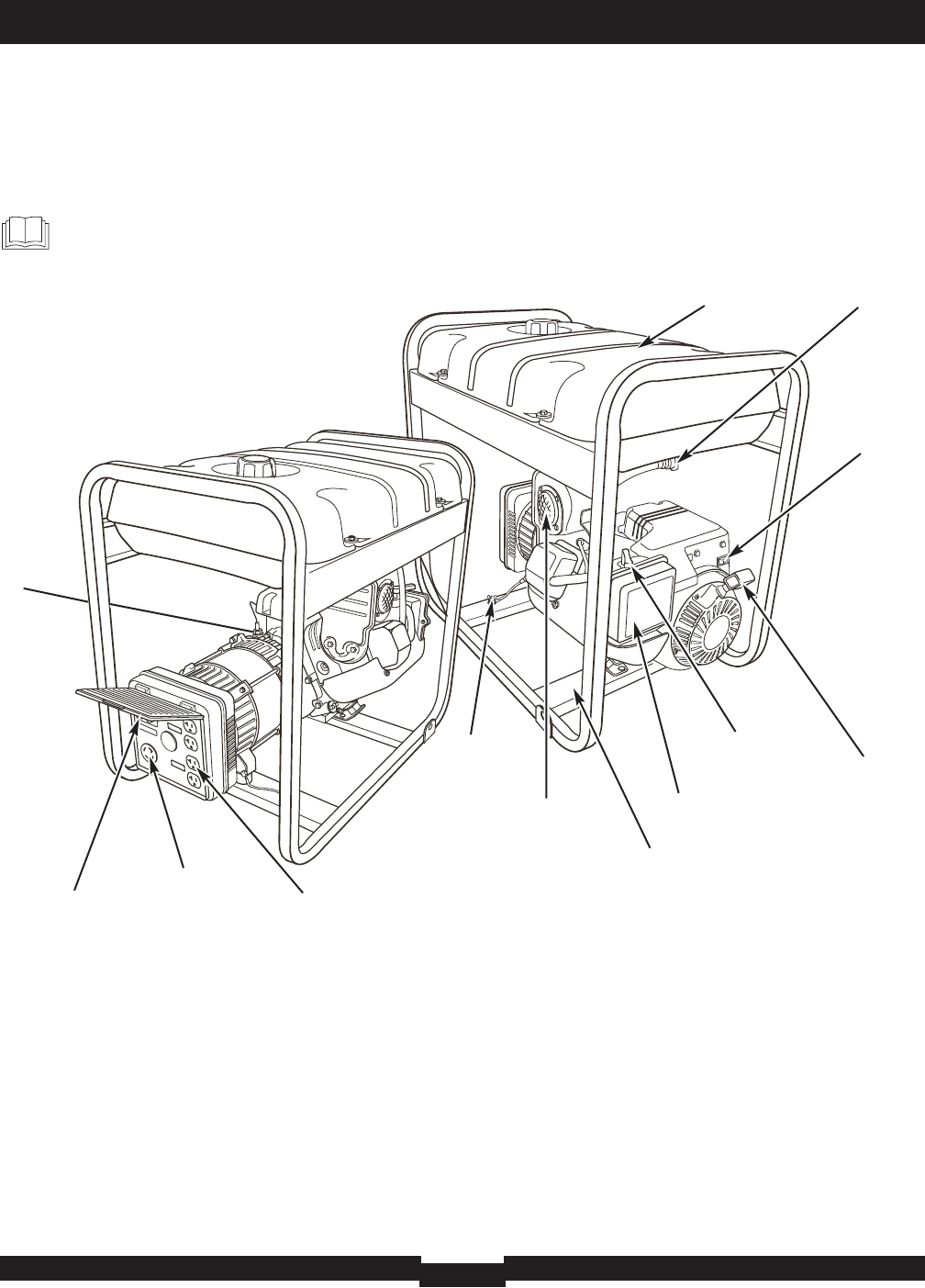
FEATURES AND CONTROLS
5
KNOW YOUR GENERATOR
Read this Operator’s Manual and safety rules before operating your generator.
Compare the illustrations with your generator to familiarize yourself with the locations of various controls and
adjustments. Save this manual for future reference.
120 Volt AC, 20 Amp
Duplex Receptacle
Fuel Tank
Choke Lever
Recoil Starter
Engine
On/Off Switch
Circuit
Breakers (AC)
120/240 Volt AC,
30 Amp Receptacle
Spark Arrester
Muffler
Air Cleaner
Grounding
Fastener
Oil Fill
120 Volt AC, 20 Amp, Duplex Receptacle — May be used to
supply electrical power for the operation of 120 Volt AC, 20 Amp,
single phase, 60 Hz electrical, lighting, appliance, tool and motor
loads.
120/240 Volt AC, 30 Amp Locking Receptacle — May be
used to supply electrical power for the operation of 120 and/or
240 Volt AC, 30 Amp, single phase, 60 Hz electrical, lighting,
appliance, tool and motor loads.
Air Cleaner — Protects engine by filtering dust and debris out
of intake air.
Choke Lever — Used when starting a cold engine.
Circuit Breakers (AC) — Push-to-reset circuit breakers are
provided to protect the generator against electrical overload.
Data Tag – Provides model, revision and serial number of
generator. Please have these readily available if calling for assistance.
Engine On/Off Switch — Set this switch to "On" before
starting engine. Set switch to "Off" to switch off engine.
Fuel Tank — Capacity of seven (7) U.S. gallons (26.5l).
Fuel Valve — Used to turn fuel supply on and off to engine.
Grounding Fastener — Consult your local agency having
jurisdiction for grounding requirements in your area.
Oil Fill — Add engine oil here.
Recoil Starter — Used to start the engine.
Spark Arrester Muffler — Exhaust muffler lowers engine noise
and is equipped with a spark arrester screen.
Data Tag
Fuel Valve



